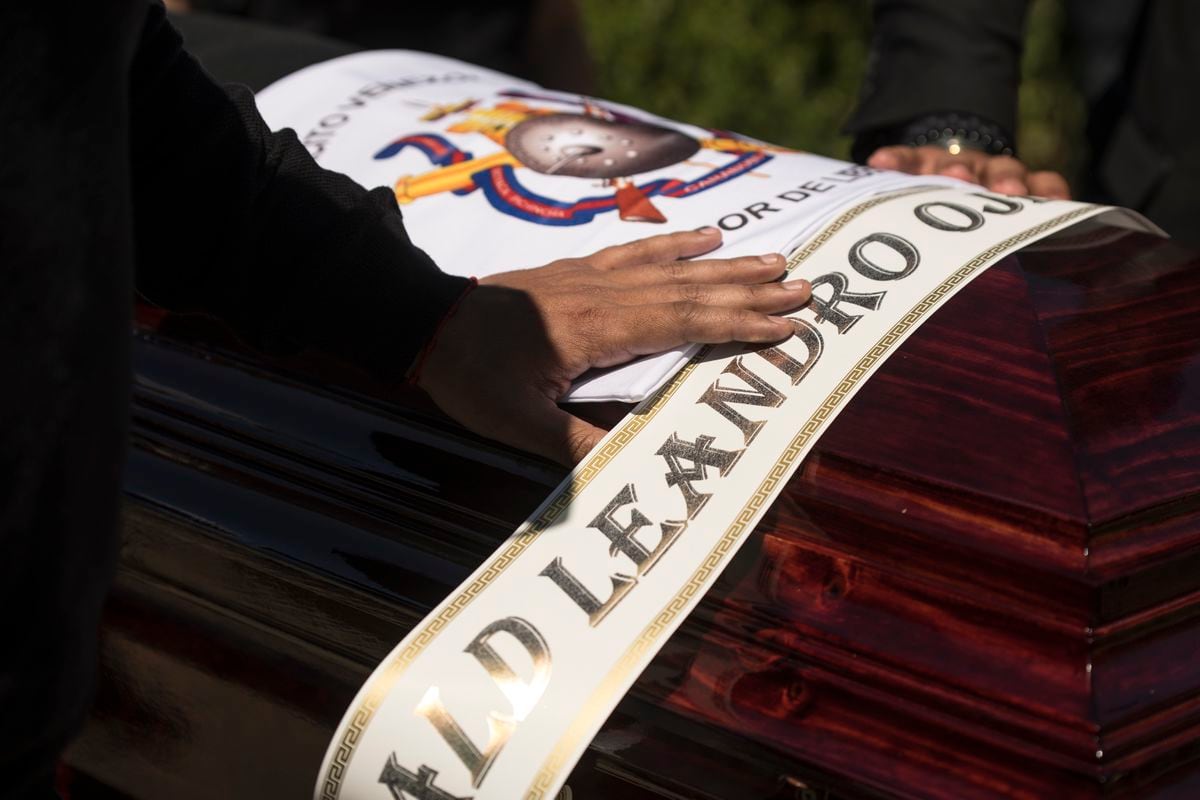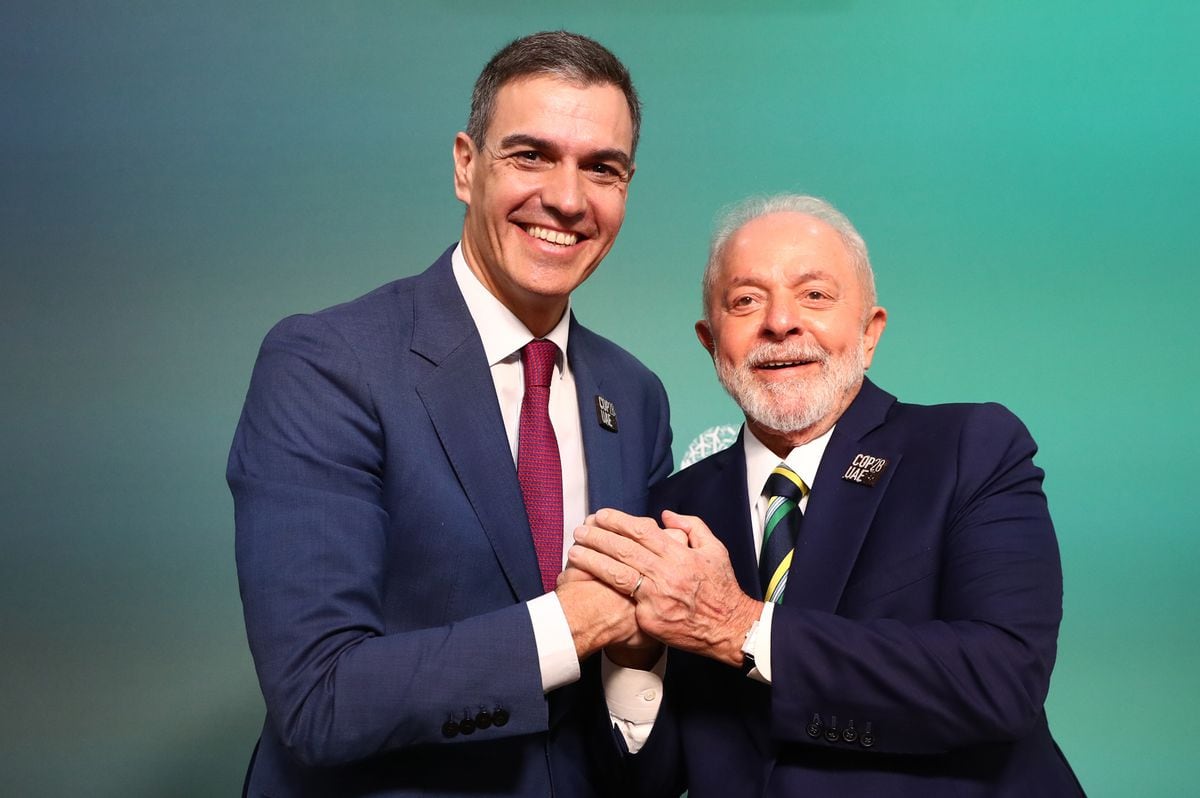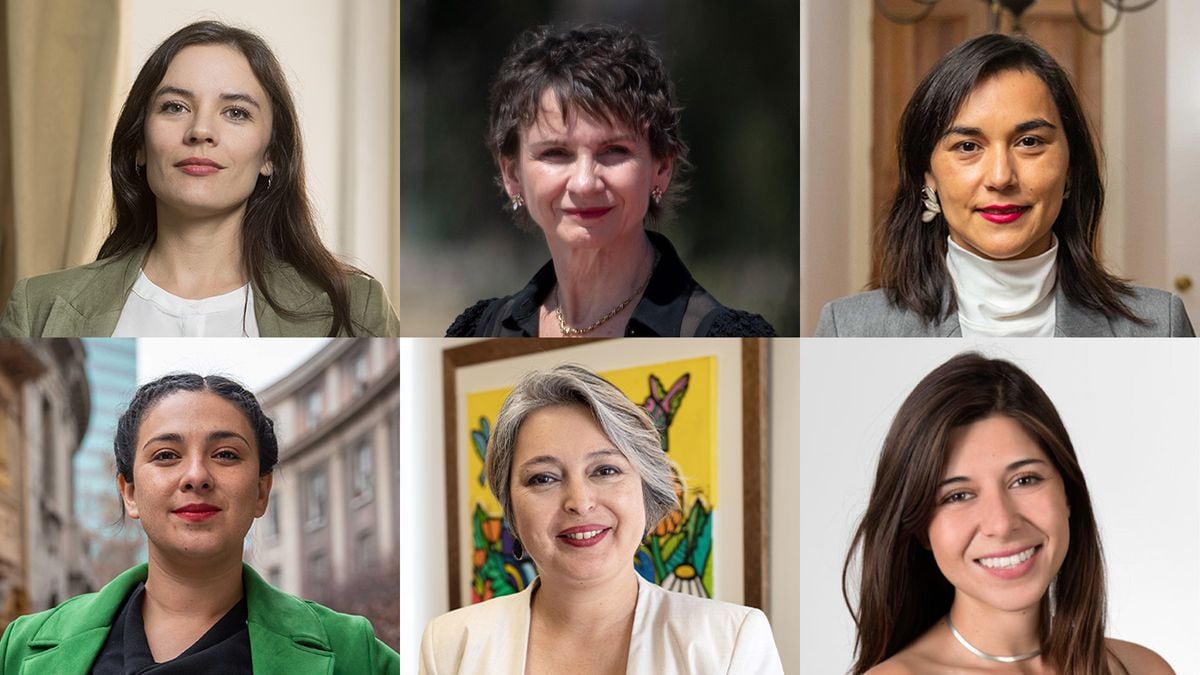The elected president of Chile, Gabriel Boric, speaks during the closing ceremony of Enade, the largest business forum in Chile, this Thursday, in Santiago.Alberto Valdes (EFE)
Less than a month after his electoral victory on December 19 and a few days after the announcement of his Cabinet, the future president of Chile, the leftist Gabriel Boric, had this Thursday his first face to face with the great Chilean business community since he became elect. He did so at the event of the most important sector in the country, Enade, in a speech where he ratified his moderate intention and openness to dialogue and which, surprisingly, started by breaking schemes. Instead of quotes from politicians, Boric began his intervention with the poem
Cemetery of Punta Arenas
—his hometown, in the far south of the country—, by the Chilean Enrique Lihn. It is a letter that refers to one of the issues that most concerns the militant of the Broad Front who will arrive at La Moneda on March 11, inequality. "Even death could not match these men, who give their names on different tombstones, or shout it to the wind of the sun that erases them: another little dust for a new gust", begins the piece that Linh wrote in 1963, one of Boric's literary references, a great reader of poetry.
As he has not yet announced who will be his team of ministers, one of the main doubts that marks Chilean politics is related to the emphasis with which Boric will try to apply his transformation measures. Whether, in short, the moderation that he showed between the first round on November 21 and the ballot on December 19, where he increased his support from 25% to 55%, will prevail or not. It was the president-elect himself who tried to answer this question in his 27-minute speech before the main business associations, in an event that has brought together the country's leaders for 30 years to expose their views on Chile.
“Probably some people may have thought that this reference to gradualism and fiscal responsibility was a campaign speech. These disquisitions of some analysts, which Boric is, if the first or second round… but I am the same”, he assured, trying to allay the fears with which a part of Chilean society observes his start and first signs. "My words about gradualism and fiscal responsibility were not a second-round campaign disguise, but a deep conviction that I reiterate," said the president-elect.
It has been the line that Boric has taken since he won the presidential elections against the ultra-conservative José Antonio Kast, whom he took more than 10 points ahead of: that of opening up to dialogue. In these weeks where the change of command is being organized, Boric has taken pains to show that his interpretation of the victory is related, precisely, to the ability he showed between the first and second rounds to summon different worlds, those of the Broad Front and the Partido Communist, the two main forces that sustain their coalition. It does so despite the fact that some sectors of its government alliance seem to resist centrism. It was what he assured in the first in-depth interview since the night of the victory, granted to a regional media, which is not usual in a country strongly centralized in the capital, Santiago.
“We would be making a big mistake if we interpret the result of the second round with arrogance. It was an important result, with a difference of almost 12 points, but if we interpreted that as an invitation to dispense with dialogue with the rest of the political forces, we would make a serious mistake that would bog us down very soon”, Boric analyzed in the
Concepción
newspaper , in a text published on Sunday.
Before the businessmen this Thursday, Boric spoke of generating conditions of stability, dialogue, gradualness and fiscal responsibility, but at the same time he took charge of the agenda of deep transformations that he seeks to deploy between 2022 and 2026, the four years of his Government. He described that "the bulk of the population lives surrounded by uncertainty" and stated that he had the "conviction" that all those present - among whom was Juan Sutil, president of the Confederation of Production and Commerce, CPC, among others business leaders—didn't want to repeat history. He was referring to the social outbreak of October 2019 that put the Chilean institutionality on the ropes and that opened the way to the constituent process. “Our current
status quo
slows economic development and deepens social unrest. We already saw it in 2019, and if we do not advance in material solutions hand in hand with the institutional ones (which are discussed today in the constituent process), we will not have solved the causes that led us to the social explosion”, analyzed Boric, dressed in a suit and no tie
"No one is going to save themselves," Boric assured in his speech, at an event center in Huechuraba, the northern area of Santiago, where he reinforced the redistributive intention of his economic agenda and asked for the commitment of businessmen. For Boric, "there can be no sustainable growth without a fair distribution of wealth" and explained that his government plan has three central axes: strengthen the social protection network, push the Chilean economy out of its "productive stagnation, which has been almost 10 years” and face “decisively” the climate crisis. He spoke that in his four years in office he will seek to generate "sustainable conditions of stability for all members of society," which, he said, includes companies.
He took advantage of the occasion to try to calm the high expectations generated by his Administration, especially in the 4.6 million people who voted for him in the second round. "It is important that we all ponder expectations," Boric assured, exemplifying urgent problems for Chile, such as the increase in camps or labor informality. And he referred to what he understands by
radicalism
, as it has been described many times. “No structural change is achieved overnight. Radicality is not in who shouts the loudest, nor in who more adjectives he puts in his sentences, or how many esdrújulas he puts in his speeches. Radicality lies in the ability to convene, in making sense of large majorities that are sustainable over time, and that makes reforms a great consensus in society that allow us a fairer life," said Boric, who in his same coalition has forces that would prefer faster transformations.
In an event where business leaders asked him for moderation — Sutil himself said that Boric seemed to be clear that he should govern for everyone — he spoke of investment, employment and an ecological government. And he specified in the spirit of his tax reform, with a charge of around five points of GDP in four years. “This tax reform should not be seen as the tax reform of my Government or as a confrontation between social classes, between good and bad. It must be seen as a new fiscal pact, which is the product of a broad, non-dilatory social dialogue, and whose changes are lasting," said Boric, who proposes advancing to a regime "more similar to that of most OECD countries. , both in terms of collection and progressivity”.
They were part of the previous signals that the president-elect of Chile delivers to the private sector a few days before an announcement that both the Chilean political scene and the markets await: the name of his Minister of Finance, who will shed light to a large extent of the tone he seeks to give his Administration.
Subscribe here to the EL PAÍS América newsletter and receive all the key information on current affairs in the region


/cloudfront-eu-central-1.images.arcpublishing.com/prisa/YERIHG6N2P66AEZ5Z6BCT6WSYE.jpg)






